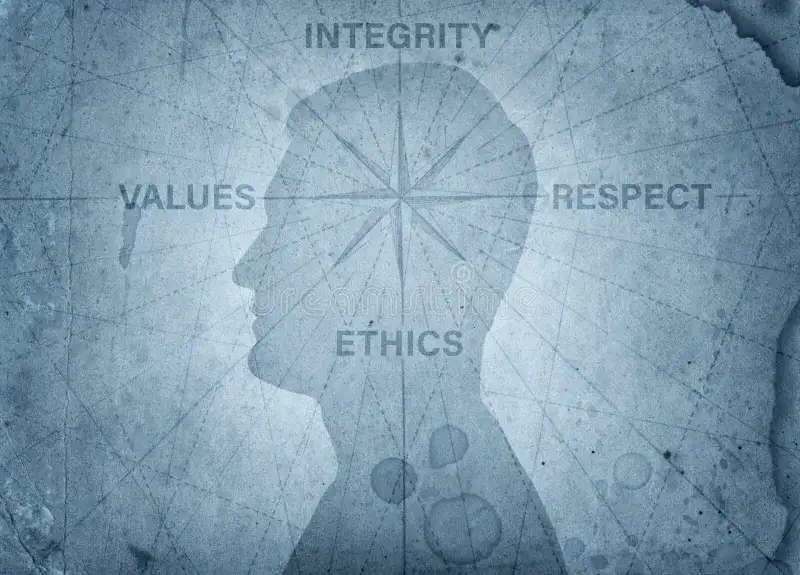I will provide a list of 11 fundamental ethics that the text you cite may reference. I will provide a list based on general ethical principles that are frequently discussed in various settings since I do not have direct access to the particular text described in this subject. If you have the original text or new info, I can adjust this answer to make it more relevant.
In many works on ethics, the following 11 fundamental ethical principles are frequently referred to:
1. Integrity
Integrity refers to a commitment to always being honest and upholding strong moral principles in all actions. It means being honest all the time, even when no one is looking.
2. Justice
Being fair means treating everyone the same, no matter their background, position, or personal tastes. It entails avoiding bias and ensuring equitable treatment for all.
3. Respect for Others
Recognizing each person’s dignity, rights, and perspective is a sign of respect. It means paying close attention and valuing differences.
4. Responsibility
Being responsible means accepting accountability for your actions and choices. This means owning up to your mistakes and working to fix them.
5. Transparency
In communication and decision-making processes, transparency means being open and honest. It makes people or groups more likely to trust each other.
6. Modesty
Being open to learning from others and acknowledging one’s own limits are both characteristics of a humble attitude. A willingness to take feedback and keep improving is part of it.
7. Empathy
Empathy is the capacity to comprehend and experience the emotions of others. In turn, this makes people more caring and helpful toward others.
8. Courage
Being brave means standing up for what you believe in, even when it’s hard or the pressure is on. It means speaking out against wrongdoing.
9. Sustainability
When you make a choice, sustainability means thinking about how it will affect people and the world in the long run. Ethical duty includes this.
10. Obligation
In every choice we make, it is our duty to prioritize the welfare of others and the community. It shows a caring attitude toward how our actions will affect others
11. Trust
Consistently acting in an ethical manner increases trust. This means keeping your word and acting in a way that makes other people feel safe and sure of themselves.
Basic Ethics Summary Table
|
Ethical Principles |
Short Description |
|---|---|
|
Integrity |
Honesty and commitment to moral principles . |
|
Fairness |
Equal treatment without bias |
|
Respect |
Respect for the dignity and rights of others |
|
Responsibility |
Accountability for actions and decisions |
|
Transparency |
Openness in communication and processes |
|
Humility |
Acknowledge limitations and be open to learning |
|
Empathy |
Understanding and caring about the feelings of others |
|
Courage |
Defending values despite challenges |
|
Sustainability |
Considering long-term impact |
|
Obligation |
Thinking about the welfare of the community. |
|
Trust |
Building trust through consistent behavior . |
Further Explanation
In many aspects of personal, professional, and social life, the aforementioned principles serve as the cornerstone of ethics. I highly suggest sharing the text or context if the writing you’re referring to has a specific focus (such as ethics in business, education, or a particular culture) so that I can provide a more precise and relevant answer. Principles like gotong royong (cooperation) and musyawarah (discussion to reach an agreement) might be relevant to include, for instance, if the writing is about ethics in Indonesian society. Without more details, I can only provide a general list similar to the one above.
Summary
Integrity, fairness, respect, responsibility, transparency, humility, empathy, courage, sustainability, obligation, and trust are the 11 basic ethics that I introduced. Discussions about morals and behavior often reference them. To help me adjust this answer to the appropriate context, if you have a particular text in mind, please share or provide additional information.

